UN, int’l community must ensure safe Rohingya repatriation: Report
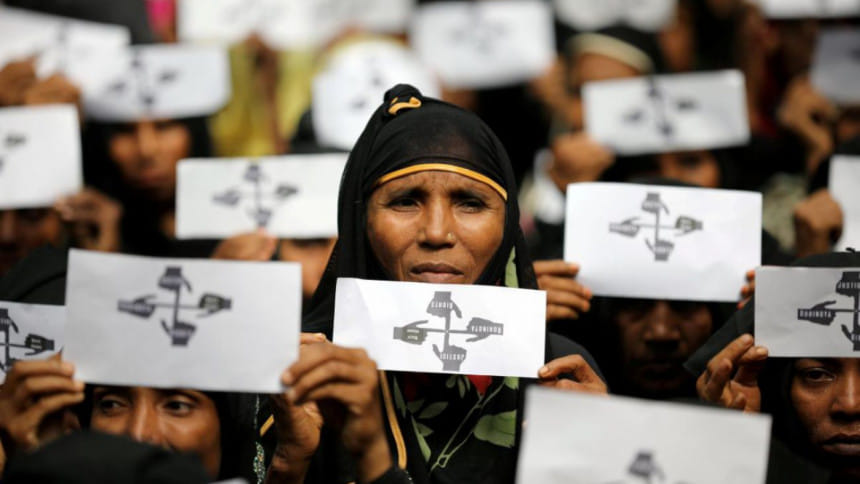
The United Nations (UN) and international community must ensure that the repatriation of displaced Rohingyas only occurs when it is safe, voluntary and dignified, with explicit human rights protections in place, including citizenship, an independent fact-finding mission recommended today.
In the current circumstances, returns of the Rohingyas to Myanmar are not possible, the probe body observed in its report.
An independent fact-finding mission of the UN Human Rights Council today revealed a report that contains its main findings and recommendations on Myanmar.
The Mission also suggested implementing the recommendations made by the UN Advisory Commission on Rakhine State, and the five consecutive Special Rapporteurs on the human rights situation in Myanmar, in order to solve the crisis, which it termed as "a matter of the utmost urgency".
The United Nations High Commissioner for Human Rights has formulated concrete recommendations, as have many international and national civil society organisations, the Mission added.
Myanmar has a heavy responsibility to remedy the situation by addressing the root causes of its recurrent problems, or it risks destroying its democratic reform process, the UN probe body observed in the report.
This begins by ensuring that the perpetrators of crimes are held accountable, and by giving hope of a future without the fear and insecurity to the victims that have characterised their existence in the country, it said.
The Mission's report drew particular attention to the following priority areas for action by the international community:
(a) The international community, through the United Nations, should use all diplomatic, humanitarian and other peaceful means to assist Myanmar in meeting its responsibility to protect its people from genocide, crimes against humanity and war crimes. It should take collective action in accordance with the United Nations Charter, as necessary.
(b) The Security Council should ensure accountability for crimes under international law committed in Myanmar, preferably by referring the situation to the International Criminal Court or alternatively by creating an ad hoc international criminal tribunal. Further, the Security Council should adopt targeted individual sanctions, including travel bans and asset freezes, against those who appear most responsible for serious crimes under international law. It should also impose an arms embargo on Myanmar.
(c) Until the Security Council acts, the General Assembly, or alternatively the Human Rights Council, should create an independent, impartial mechanism to collect, consolidate, preserve and analyse evidence of violations of international humanitarian law and human rights violations and abuses and to prepare files to facilitate and expedite fair and independent criminal proceedings in national, regional or international courts or tribunals.
(d) The Human Rights Council should continue to support the mandates of the Special Rapporteur on Myanmar and the High Commissioner for Human Rights, and ensure they have adequate resources to maintain a strong focus on the human rights crisis in Myanmar.
(e) The Human Rights Council should specifically request OHCHR to focus on ensuring accountability for human rights violations and abuses in Myanmar, including by enhanced monitoring, documentation, analysis and public reporting on the human rights situation; raising awareness among civil society and other actors engaged in documenting human rights violations about relevant international standards; working with victim communities to raise awareness about justice options; and supporting comprehensive rule of law and security sector reform in Myanmar in line with international human rights norms and standards. Appropriate resources must be allocated.
(f) The Human Rights Council should establish a second fact-finding mission for a limited period to build on the work undertaken by the Mission, until either one of the mechanisms outlined in (b) or (c) are operational, or the reinforced work of OHCHR set out in (e) is in place.
(g) The United Nations should urgently adopt a common strategy to ensure that all engagement with Myanmar takes into account, and addresses, human rights concerns, in line with the Human Rights Up Front Action Plan. This should guide all UN engagement in Myanmar, particularly in relation to Rakhine State, and include policies and public advocacy stances. All United Nations support to Myanmar authorities should undergo a full Human Rights Due Diligence analysis.
(h) As a matter of urgency, there must be a comprehensive, independent inquiry into the United Nation's involvement in Myanmar since 2011, with a view to establishing whether everything possible to prevent or mitigate the unfolding crises was done; identifying lessons learned and good practice; making recommendations as appropriate, including on accountability; and enabling more effective work in future.
(i) The United Nations and international community must ensure that the repatriation of refugees and return of internally displaced persons only occurs when safe, voluntary and dignified, with explicit human rights protections in place, including citizenship. In the current circumstances, returns are not possible.
(j) All Member States should ensure that engagement with Myanmar, and support for aid, development and reform projects, take into account and address human rights concerns, and explicitly conform to the principles of non-discrimination and equality. They should ensure that humanitarian organizations working on Myanmar are appropriately funded. States should cease operational support to the Tatmadaw and other security forces until there is (1) demonstrable commitment to genuine reform, (2) international assistance in implementing reform and (3) acceptance of and cooperation with international mechanisms to hold those responsible accountable for crimes under international law.
(k) Regardless of the imposition of an arms embargo by the Security Council, States should not authorize the transfer of arms to Myanmar, considering the overriding risk that they would be used to undermine peace and security and in the commission of serious crimes under international law.
(l) Relevant regional organizations, including the European Union and ASEAN, should develop strategies to ensure accountability for perpetrators of crimes under international law in Myanmar, including through sustained engagement with Myanmar and support for an international justice mechanism.
(m) Member States should exercise jurisdiction to investigate and prosecute alleged perpetrators of serious crimes under international law committed in Myanmar.
(n) The United Nations should establish a trust fund for victim support, through which victims can receive psychosocial support, legal aid, livelihood support, and others means of assistance. All trust fund projects should be designed in consultations with victims.
The UN fact-finding body concluded that the gross human rights violations and abuses committed in Kachin, Rakhine and Shan States are shocking for their horrifying nature and ubiquity, and that these abusive patterns are reflective of the situation in Myanmar as a whole.

 For all latest news, follow The Daily Star's Google News channel.
For all latest news, follow The Daily Star's Google News channel. 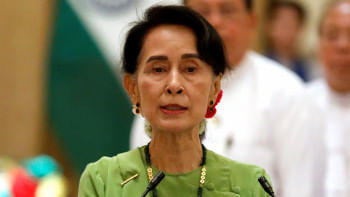


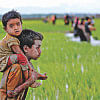
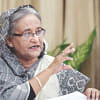

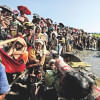



Comments